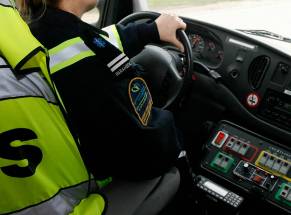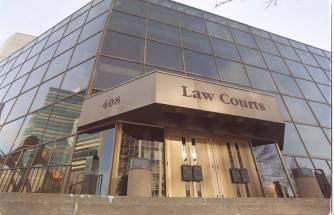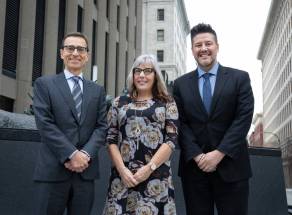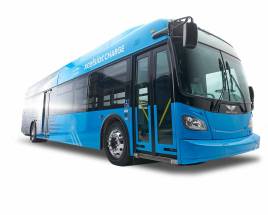Time to put pedal down on Transit electrification
Read this article for free:
or
Already have an account? Log in here »
To continue reading, please subscribe:
Monthly Digital Subscription
$1 per week for 24 weeks*
- Enjoy unlimited reading on winnipegfreepress.com
- Read the E-Edition, our digital replica newspaper
- Access News Break, our award-winning app
- Play interactive puzzles
*Billed as $4 plus GST every four weeks. Offer only available to new and qualified returning subscribers. Cancel any time.
Read unlimited articles for free today:
or
Already have an account? Log in here »
Hey there, time traveller!
This article was published 29/11/2022 (825 days ago), so information in it may no longer be current.
Eight years ago this week, Winnipeg Transit rolled out its first zero-emission bus as part of a four-year pilot project to study the electrification of its fleet. Three more battery-electric buses were soon added to the Academy-Watt route, which included a charging station at the Winnipeg Richardson International Airport.
The project was remarkably successful and exceeded expectations in many areas. The near-noiseless vehicles weathered Winnipeg’s harsh winters with ease and proved operationally reliable. A 2016 evaluation report recommended adding 12 to 20 electric buses to the fleet (and another 120 to 200 as a next step).
But then, inexplicably, Transit’s enthusiasm for the project stalled. The evaluation report was kept under wraps for two years and it wasn’t until 2019 that city council called for more studies.
Winnipeg was a leader among Canadian cities when it rolled out its first zero-emission bus on Nov. 29, 2014. By the time the pilot project ended in 2018 (and the electric buses were taken out of service), Winnipeg had fallen behind cities such as Vancouver, Montreal, Toronto and many U.S. centres, all of which announced long-term plans to electrify their transit systems.
Ironically, many of those jurisdictions purchased electric buses from Winnipeg-based NFI Group (formerly New Flyer), which has been manufacturing zero-emission vehicles in the city since 1995.
After a four-year delay, it appears Winnipeg is now prepared to take the next step in electrifying its public transit system. Better late than never, although the sluggishness in moving this project forward has been disappointing, given the urgent need to reduce greenhouse-gas emissions.
City hall’s public works committee has approved a proposal to buy 16 electric buses from NFI Group for $33 million. The purchase includes eight 60-foot and eight 40-foot buses. If all goes to plan, the buses are expected to be on the road by the summer of 2024.
The goal is to have 110 electric buses integrated into Winnipeg Transit’s fleet of approximately 650 buses by 2027. It is an ambitious target, but it’s doable. It will require political will at city hall to see it through, something that was missing from the first pilot project.
The 16 new electric vehicles will not replace diesel buses, at least not initially. They will be net additions to the fleet. The vehicles will be used to collect data and help Transit plan for the next phase of electrification.
RUTH BONNEVILLE / WINNIPEG FREE PRESS FILES Winnipeg Mayor Scott Gillingham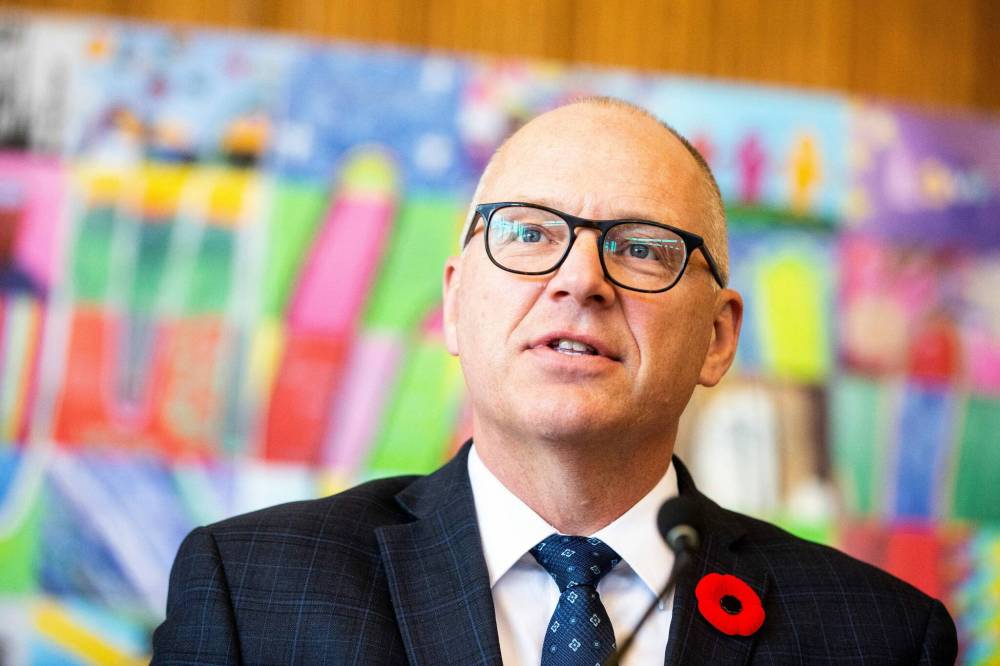
There are challenges in making that transition, including logistical planning around vehicle charging and integrating electric buses into a system developed for diesel technology. It’s not simply a question of swapping a diesel bus for an electric one.
Staff also require training to maintain and operate the new vehicles, and Transit has to build a new garage to store and charge them. Still, other cities are doing it; Winnipeg doesn’t have to re-invent the wheel.
Electrifying Winnipeg Transit won’t have a major impact on reducing carbon emissions, not on its own. Rather, it is one of many steps the city must take to transition to clean, renewable energy sources. The visibility of electric buses on the streets of Winnipeg may also inspire others to find ways to reduce their emissions.
Properly marketed, this initiative could attract new Transit riders who want to be part of a low-carbon economy.
Winnipeg’s new city council and Mayor Scott Gillingham must show they have the political will to take this project to the finish line. It’s time for city hall to put the pedal to the metal on zero-emission buses.





